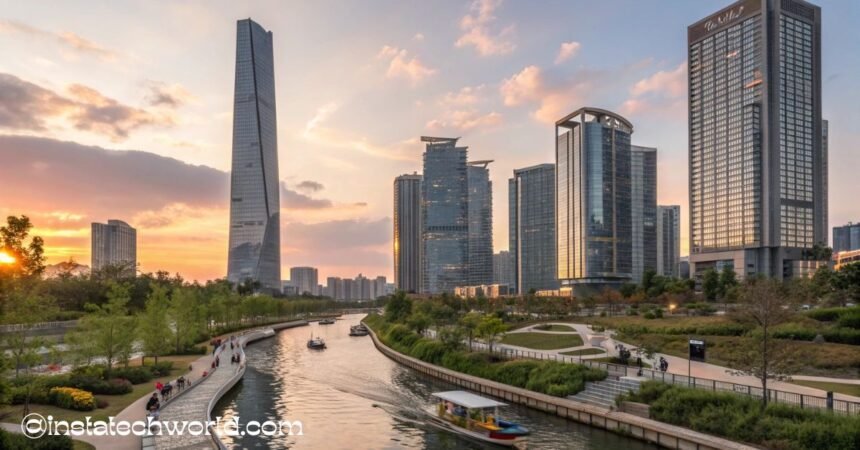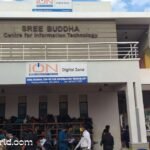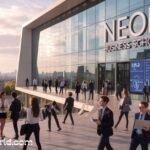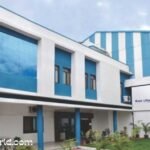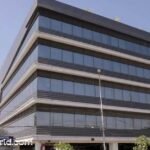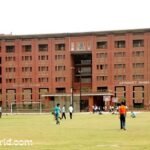Songdo International Business District is a pioneering smart city near Seoul, designed with cutting-edge technology and eco-friendly principles. As a futuristic urban hub, it blends business, residential, and green spaces to create a seamless modern lifestyle. Known globally, Songdo stands as a model for sustainable, smart city development.
Stay tuned with us as we explore more about the fascinating Songdo International Business District and uncover why it’s a true city of the future!
Introduction to Songdo International Business District
Songdo International Business District (also known as Songdo Smart City and Songdo, the city of the future) is a visionary urban project built on reclaimed land in South Korea. Located 30 kilometers from Seoul and connected by Incheon Bridge, Songdo City showcases a new era in sustainable, tech-driven living. It has become a global model for future urban developments and often appears in international case studies of Smart cities, Songdo Republic.
Master Plan & Development History
The master plan for Songdo International Business District began in 2001, covering 1,500 acres reclaimed from the Yellow Sea. With partnerships like Gale International and POSCO E&C, this Songdo Eco-City was designed to integrate work, life, and leisure seamlessly. The district features expansive office spaces, residences, retail, and green zones, forming a cohesive Songdo map that reflects thoughtful planning and innovation.
Why Songdo is a Smart City
Why Songdo is a smart city is clear from its design: high-speed connectivity, IoT systems, and sustainable solutions define its identity. The city uses smart traffic management, automated waste collection, and energy-efficient infrastructure. These features position Songdo as a leading example in international case studies of Smart cities Songdo republic of, inspiring other urban projects worldwide.
Smart City & Technology Integration
A core part of Songdo International Business District is its advanced tech infrastructure. Residents enjoy smart homes, Cisco TelePresence, and city-wide sensors that monitor energy and transportation. The Songdo smart city systems include underground waste transport and integrated data networks, making it a truly futuristic place to live and work.
Sustainability & Green Building Leadership
Sustainability is central to Songdo International Business District. With over 100 LEED-certified buildings, water recycling, and 40% green spaces, Songdo Eco-City demonstrates strong environmental stewardship. It hosts the Green Climate Fund Secretariat, showing how green practices and innovation can coexist harmoniously.
Signature Landmarks & Architecture
The Songdo map highlights iconic sites like Songdo Central Park, NEATT Tower, Songdo Convensia, and Canal Walk. These landmarks make Songdo City an attractive business and cultural hub. Tri-Bowl and G-Tower add artistic and institutional value, showcasing the district’s commitment to blending modern design with community needs.
Transportation & Accessibility
On Songdo maps, you’ll see how well-connected the city is. A short ride from Incheon Airport, Songdo International Business District has extensive subways, buses, and pedestrian-friendly pathways. The design supports an active lifestyle, reducing car dependency while enhancing convenience and accessibility.
Business, Education & Innovation
Songdo International Business District is a magnet for global business, with 45 million square feet of office space and the Global University Campus. Educational facilities, research hubs, and innovation centers further its reputation as Songdo, city of the future, making it a center for biotech, IT, and green technology.
Residential Life & Community
Songdo International Business District offers diverse housing, from luxury towers to garden-style residences. Its smart, safe, and organized environment attracts both locals and expatriates. Despite critiques of sterility, the city remains a model of modern urban living inspired by Songdo Eco-City principles.
Culture, Recreation & Lifestyle
Central Park, Canal Walk, and cultural venues such as Tri-Bowl create a vibrant atmosphere in Songdo International Business District. Shopping centers and global dining options add to the dynamic urban experience, illustrating how the city merges work, life, and leisure.
Strengths & Challenges
The strengths of Songdo International Business District include its innovative infrastructure, green design, and strategic global position. Challenges include slower organic growth and debates over cultural vibrancy. Despite this, Songdo City stands as a prime example in international case studies of Smart cities Songdo republic of.
Future Outlook
Future developments will strengthen Songdo International Business District as a global business and smart living hub. As a blueprint for future cities, Songdo smart city will continue to inspire urban planners globally.
Conclusion
Songdo International Business District combines advanced technology, green principles, and forward-thinking design, making it a leading example for future cities. Its progress offers lessons in sustainable, smart urban development.
FAQs
1. What is Songdo International Business District best known for?
Songdo International Business District is famous for its smart city innovations, sustainable design, and advanced infrastructure.
2. How sustainable is Songdo International Business District?
It’s highly sustainable, with over 100 LEED-certified buildings and strong eco-friendly practices, making it a true Songdo Eco-City.
3. Is Songdo International Business District fully completed?
While major parts are finished, Songdo International Business District continues to expand and evolve.
4. What are the main attractions in Songdo International Business District?
Highlights include Songdo Central Park, NEATT Tower, Songdo Convensia, Canal Walk, and cultural centers like Tri-Bowl.
5. Can foreigners live and work in Songdo International Business District?
Yes, Songdo International Business District offers a welcoming environment for international residents and businesses.
Also read:
